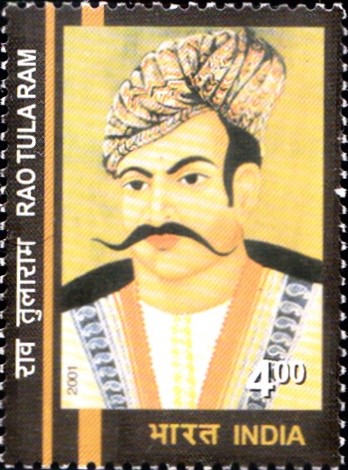
Rao Tula Ram
A commemorative postage stamp on the Death Anniversary of Raja Rao Tularam Singh, king of Rewari and one of the key leaders of Indian rebellion of 1857 from Haryana :

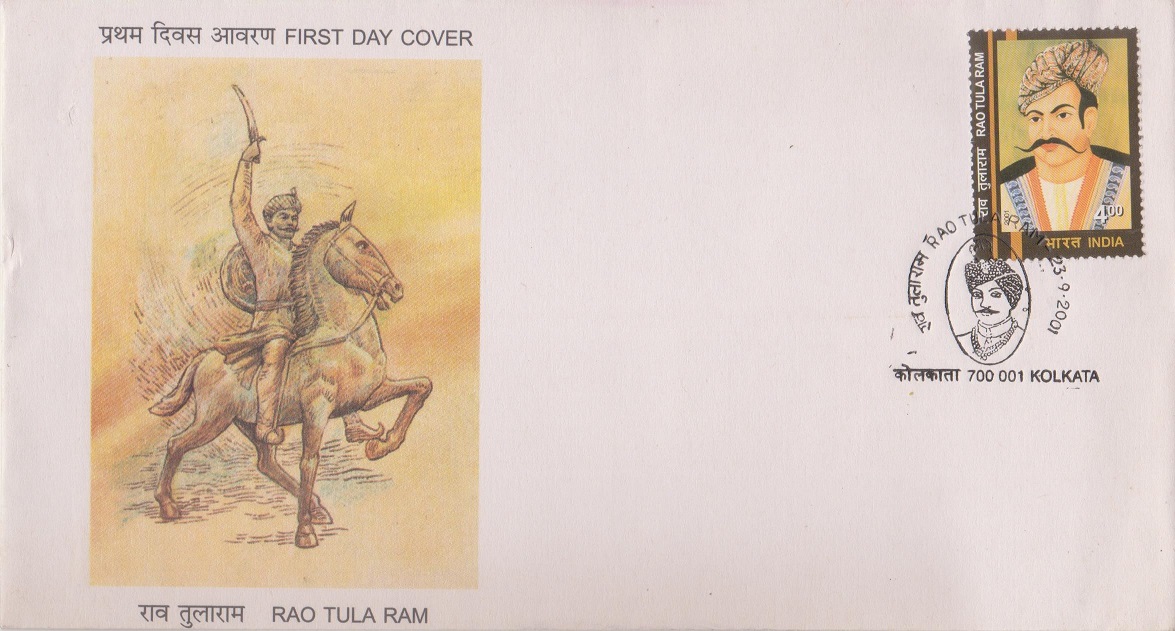 Issued by India
Issued by India
Issued on Sep 23, 2001
Issued for : The Department of Posts is proud to issue a commemorative postage stamp honouring this brave patriot who persevered till his last breath to free his country from the shackles of colonialism.
Credits :
Stamp : Lay out by Alka Sharma (Based on material furnished by the sponsors)
FDC : Sankha Samanta
Cancellation : Alka Sharma
Type : Stamp, Mint Condition
Colour : Four Colour
Denomination : 400 Paise
Overall size : 2.90 x 3.91 Cms.
Printing Size : 2.54 x 3.55 Cms.
Perforation : 13 x 13
Paper : Imported un w/m stamp paper
Stamps Printed : 0.4 million
Number per issue sheet : 40
Printing Process : Photo Offset
Printer : Eagle Press Pvt. Ltd.
Name : Raja Rao Tula Ram
Born on Dec 9, 1825 at Rampura village, Rewari, Punjab, India
Died on Sep 23, 1863 at Kabul, Afghanistan
About :
- Rao Tula Ram (1825-1863) of Rewari (presently in Haryana) was one of the important leaders of the First War of Independence of 1857, the great armed struggle against the British East India Company‘s domination of India.
- The traditional ruler of a small state in the pargana of Rewari, Tula Ram, like many Indian chieftains, held a grudge against the British for annexing much of the vast territory of his ancestors. When the Revolt of 1857 broke out in Meerut, the Rao sprung into action without wasting any time. He took control of the local administration in Rewari, displacing the officials owing allegiance to the British and proclaimed his rule, under the sanction of Emperor Bahadur Shah of Delhi, considered the titular head of India by the rebels of the Revolt.
- Tula Ram had considerable insight into the dynamics of statecraft and was quick to realise that to be effective as a ruler and win the support of his subjects, it was essential to provide them security of life and property. He started by streamlining the Revenue Department and raising funds through effective collection of land revenue. With these funds, Tula Ram enlisted a force of about five thousand men, which was further organised systematically into different units of artillery, infantry, cavalry and police. The common people offered him full cooperation as they saw in him a powerful leader who restored law and order in the midst of prevailing anarchy.
- In the meantime, the British forces had regrouped and wrested back power from the rebels in most parts of the country including Delhi. After the fall of Delhi, the British officers diverted their attention to the nearby Rewari, leading to a series of confrontations. In the final conflict of Narnaul in November 1857, the British emerged victorious, despite the gallant resistance put up by the forces of Tula Ram. It was a decisive victory, marking the close of a crucial period of struggle in the Delhi division and the restoration of the British supremacy in the region.
- Rao Tula Ram moved into Rajasthan after the loss of Narnaul, and held a series of discussions with the Rajput Princes, in the hope of forming a united front against the colonial power. However, the British supremacy had been firmly re-established by that time and no help was forthcoming. It is also believed that Tula Ram, having grasped the global dimensions of colonialism, tried to enlist the support of countries like Afghanistan, Iran and Russia to fight the British. He is stated to have toured Iran and Afghanistan with this mission. Finally, the long journeys and the varying climates told on his health and he died in Kabul in September 1863.
- Text : P.N. Ranjit Kumar (Based on inputs from Prof. K.C. Yadav, Gurgaon, Haryana).


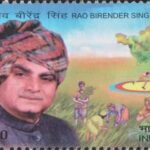
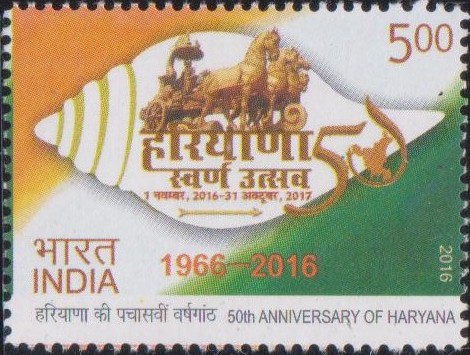

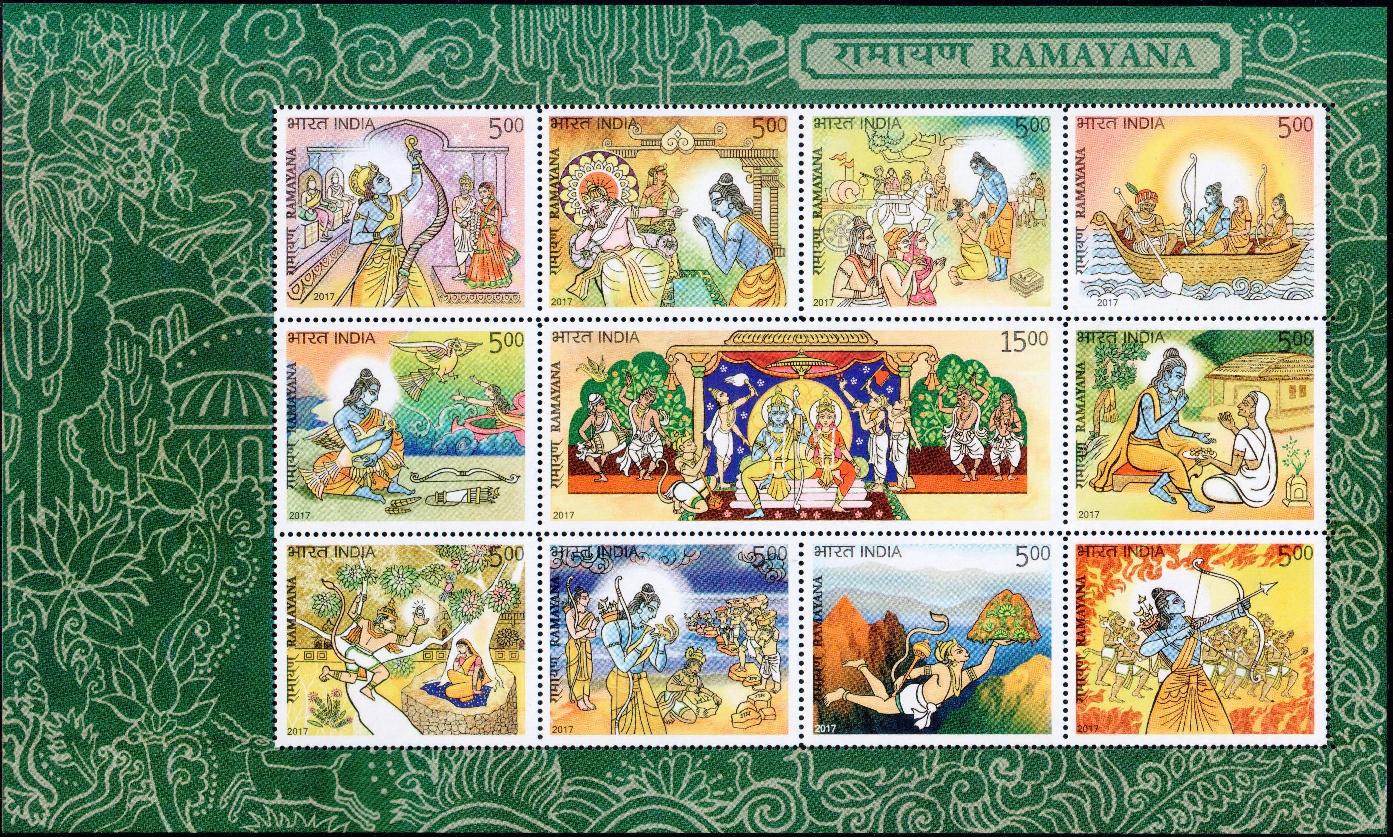
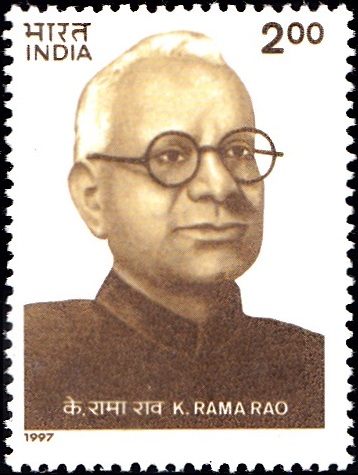
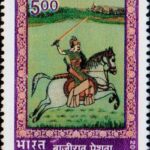
[…] Cabinet Minister in Government of India, Late Rao Birender Singh, a descendant of Shaheed-e-Azam Rao Tula Ram, a frontline hero of the 1857 movement for Independence, belonged to the Royal Family of Rewari. He […]
[…] revolt, the kingdoms of Nawabs of Jhajjar and Bahadurgarh, and those of the king of Ballabhgarh and Rao Tula Ram of Rewari were taken away from them. These kingdoms were either merged with the British territories […]
[…] cover to the FPOs of Eastern Command. 1 CBPO shifted to its own Key Location Plan accommodation at Rao Tula Ram Marg in Feb 1977 in an area of forty-eight acres. Army HQ SDS Unit was merged with 1 CBPO on 01 Feb […]